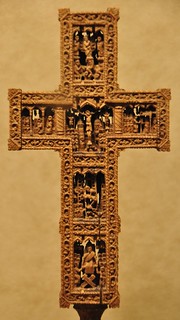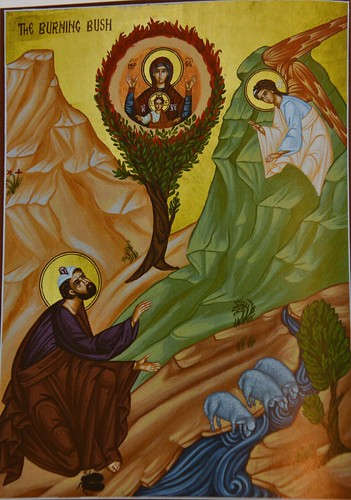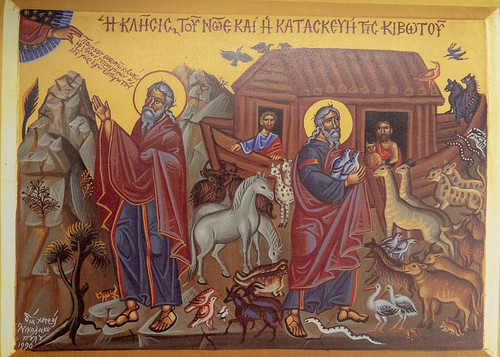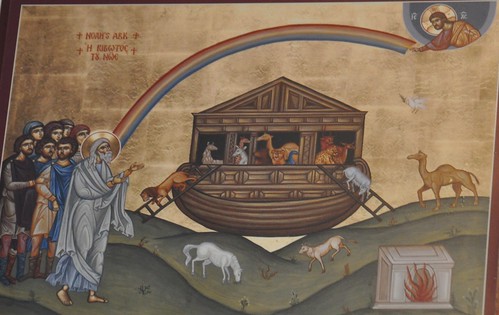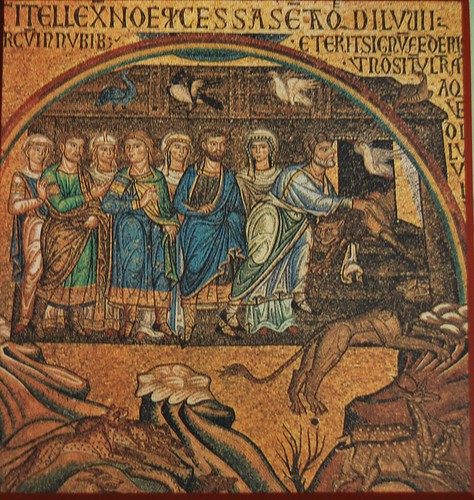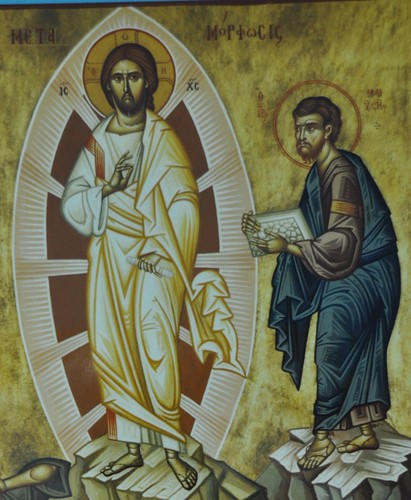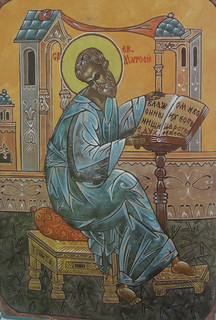 Sometimes the behavior of the chosen people in the Old Testament appears to be of questionable moral character. One day, about 40 years ago, a parent told me he had decided to begin reading the Bible, and as with many people started with Genesis. As he read through the scriptural stories, he was troubled by both the nature of many stories in the Old Testament and by the seeming lack of moral conscience on the part of some of the Bible’s main characters. He told me that he could not recommend to his two teenage children to read the Bible because he didn’t think his children would learn good moral behavior from some of the characters.
Sometimes the behavior of the chosen people in the Old Testament appears to be of questionable moral character. One day, about 40 years ago, a parent told me he had decided to begin reading the Bible, and as with many people started with Genesis. As he read through the scriptural stories, he was troubled by both the nature of many stories in the Old Testament and by the seeming lack of moral conscience on the part of some of the Bible’s main characters. He told me that he could not recommend to his two teenage children to read the Bible because he didn’t think his children would learn good moral behavior from some of the characters.
There is truth in what he says. There are a number of characters and a number of situations in the Old Testament where the chosen saints act in a less than moral fashion. This obvious truth was commented on even in Patristic times. Early Christians had to worry that Hellenic readers of the Old Testament might not see good moral examples in the people of the Bible. Consequently, they began to point to truth that was beyond the literal reading of the text and which required a more sophisticated or nuanced reading of scripture. If the Bible was to be seen as divinely inspired scripture, it had to be shown that it had a divine message and was far more than a mere human story or history.
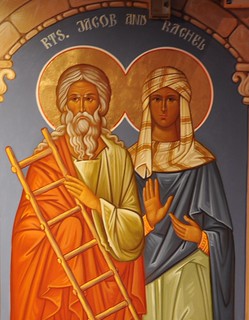 Jacob of Serugh (d. 521AD) reflecting on the behavior of various women in the Old Testament, notes that if their behaviors seem incomprehensible or even immoral it is only because we are reading the Old Testament text too literally. If we are only reading to learn about historical events, we are missing the focus of the Old Testament. Only when we understand that the heroes of the Old Testament were actually seeking Christ, can we appreciate their lives and purpose in the Scriptures. He mentions specifically Leah, Rachel and Ruth, all who (in his reading at least) had too great an interest in sex (whereas virginity was more associated with virtue). He praises them as women of virtue and integrity because they were seeking Christ and could not find their spiritual fulfillment in the world. They are praised for seeking Christ even if they didn’t fully understand what the object of their desire really was. Jacob says in the literal reading of the Old Testament we come to doubt the ethics of some of the leading characters and certainly don’t want to emulate them as they literally are not paragons of (monastic) virtue. For Jacob, we are troubled by what we read in scripture only because we aren’t seeing the stories of the Old Testament as having to do with finding Christ. He emphases that these women who appear to be running after men, are important because of their relationship to Christ, not because of the few behaviors they engaged in as described in the Bible.
Jacob of Serugh (d. 521AD) reflecting on the behavior of various women in the Old Testament, notes that if their behaviors seem incomprehensible or even immoral it is only because we are reading the Old Testament text too literally. If we are only reading to learn about historical events, we are missing the focus of the Old Testament. Only when we understand that the heroes of the Old Testament were actually seeking Christ, can we appreciate their lives and purpose in the Scriptures. He mentions specifically Leah, Rachel and Ruth, all who (in his reading at least) had too great an interest in sex (whereas virginity was more associated with virtue). He praises them as women of virtue and integrity because they were seeking Christ and could not find their spiritual fulfillment in the world. They are praised for seeking Christ even if they didn’t fully understand what the object of their desire really was. Jacob says in the literal reading of the Old Testament we come to doubt the ethics of some of the leading characters and certainly don’t want to emulate them as they literally are not paragons of (monastic) virtue. For Jacob, we are troubled by what we read in scripture only because we aren’t seeing the stories of the Old Testament as having to do with finding Christ. He emphases that these women who appear to be running after men, are important because of their relationship to Christ, not because of the few behaviors they engaged in as described in the Bible.
“When and how have women so run after men
as these women who contended over the Medicine of Life?
The divine plan, mistress of mysteries, incited these women
with love of the Only-Begotten before He had ever come.
It was because of Him that they acted without restraint and schemed,
putting on the outward guise of wanton women,
despising female modesty and nobility,
not being ashamed as they panted for men.
Someone who wants to get hold of a treasure, if he could,
would perform a murder in order to gain the gold he so desired.
These women, while running after men,
were yearning for the Son of God’s great Epiphany,
and they struggled for the seed of the House of Abraham,
since they had learnt that in it the People of the earth would be blessed.” (TREASURE-HOUSE OF MYSTERIES, p 90)
Jacob like other Patristic writers commenting on the Song of Songs believes if you read the Bible like a soap opera, all you see is a lot of sex, violence and selfish actions. But for him, the Bible is a text about divinity and about Christ. We have to read the narrative looking for God and not just to read about how humans behave or misbehave. Jacob doesn’t advocate getting rid of some biblical texts because they are difficult to understand and stumbling blocks for the faithful. He doesn’t think the Bible is less valuable as a divine text because the ‘saints’ sometimes sin. Rather, he advocates for seeing the text for what it is – a mystery both hiding and revealing Christ.
Tell me, you who desire to be under law, do you not hear the law? For it is written that Abraham had two sons, one by a slave and one by a free woman. But the son of the slave was born according to the flesh, the son of the free woman through promise. Now this is an allegory: these women are two covenants. One is from Mount Sinai, bearing children for slavery; she is Hagar. Now Hagar is Mount Sinai in Arabia; she corresponds to the present Jerusalem, for she is in slavery with her children. But the Jerusalem above is free, and she is our mother. (Galatians 4:21-26)



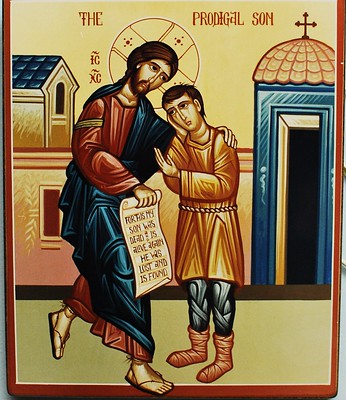







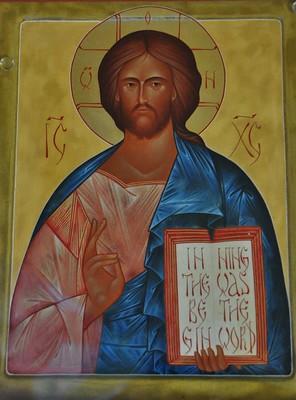
 The 51st Psalm is used frequently in Orthodox prayers and services as the Psalm of repentance.
The 51st Psalm is used frequently in Orthodox prayers and services as the Psalm of repentance. 




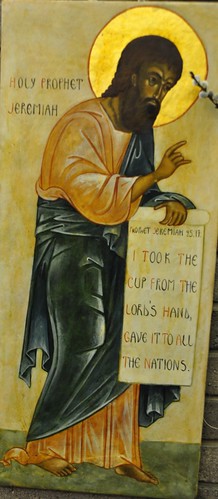



 “A Life-giving Myth” is the title of a short story in John Breck’s
“A Life-giving Myth” is the title of a short story in John Breck’s 










